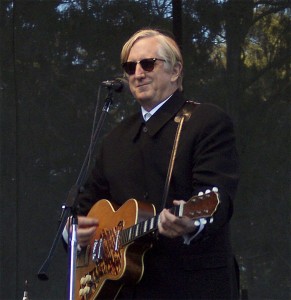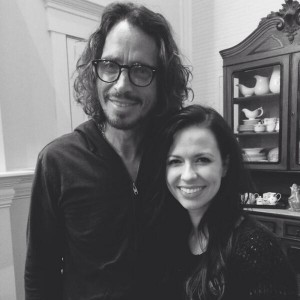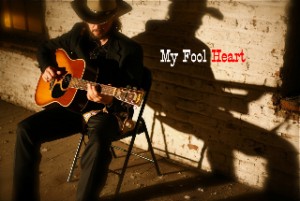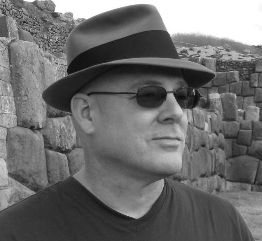T Bone Burnett Is Wrong
While discussing working on the Coen brothers upcoming Greenwich Village folk-movement inspired soundtrack for “Inside Llewyn Davis,†with American Songwriter singer/songwriter/producer and auteur of the austere T Bone Burnett took the occasion to deride both technology and self-promotion.
Now the negative impact of technology on the music industry, from piracy to inferior audio quality, is well documented and debated. Given Burnett’s years of expertise as a successful musician and producer he has the upper hand when discussing technology’s impact on sonic and creative part of the music industry.
Where Burnett gets it wrong is when he says:
“Self-promotion is a horrible thing. As soon as an artist self promotes he ceases to become an artist, he becomes a salesman.’
T Bone should know better.
Many early twenty century artists that influence Burnett’s dust-bowl aesthetic were quite adept at using the technology of their day to have their music heard and to make people aware of upcoming shows and new releases.. They were equally adept at the art, yes art, of self-promotion as they were songwriting and performing.
Ralph Stanley, who Burnett worked with on the Americana watershed OST for ‘O Brother Where Art Thou,†recounts in his book “Man of Constant Sorrow: My Life and Times†that he, his brother Carter, regularly made use of the self-promotion technology of the day, radio, becoming regular personalities on the local station WNVA in Norton, Virginia.
After graduating from high school, and receiving an honorable discharge from the Army, Stanley returned to Virginia where he and Carter formed a and their band, the Clinch Mountain Boys, and established themselves in Bristol, Virginia’s WCYB scheduling.
Would Burnett consider Ralph Stanley a “salesman†in the derisive vein he spoke above? I don’t think so.
But there Dr. Ralph was, utilizing the social media of his day, the radio — promoting his music and upcoming live shows at local schools and churches. In other words self-promoting.
Many of the folk artists that paved the way for Americana and country music honed their chops, both musical and self-promotional, traveling with medicine shows. These mobile infomercials arrived shortly after the Civil War and employed tumblers, dancers, fire-eaters, snake handlers, comedians and hillbilly musicians to attracted the locals with pockets full from selling their harvest. Once a crowd had formed some smooth-talking huckster pitched some panacea sure to cure all ailments.
These traveling shows might not have cured folks, but they allowed musicians to perform in front of an audience. It also taught them the importance of promotion and selling.
T Bone himself owes much of his storied career to the tools of self-promotion. After a series of post high school bands he landed a plum gig. a touring guitarist for a master of self-promotion, Bob Dylan’s Rolling Thunder Revue.
In 2000, Burnett produced the soundtrack and wrote the score for the Coen Brothers film, ‘O Brother, Where Art Thou?’. The award-winning, best-selling soundtrack featuring Emmylou Harris, Alison Krauss, Ralph Stanley, Gillian Welch and others. This not only brought rural roots and blues music back into mainstream consciousness it brought it’s creator there as well.
More movies, like Crazy Heart and I Walk the Line, and production credits for Elvis Costello, Allison Krauss and Robert Plant, B.B. King, Elton JOhn and many others looking for a particular, and lucrative, sound followed.
These gigs didn’t fall out of the sky or find just the right man the right mix of talents serendipitously. Burnett’s reputation preceded him. A reputation formed partially by talent and partially by promoting, self or otherwise.
Art and commerce has always had a thorny relationship, Cultural artifacts — visual arts, music, theatre , etc. — in modern history have always relied on state or private benefactors to assure the creator the lifestyle to create more work and, ideally, free from intrusion. This arrangement doesn’t come cheap.
It’s cliche to say the music industry is in turmoil. Much of the churn is self-inflicted apathy fueled by short-term, greedy delusion that music would always remain trapped in physical objects. And that the price of those objects would forever be dictated by the labels.
But the Genie made it out.
We now see the product is not the record/tape/disc. It’s the music. The invisible music contained within the grooves or tape has been released, forever to buy on demand, anywhere. Or to steal just as readily.
But in turmoil there;s often opportunity and affordable technology has also allowed artists to take control of their careers by allowing access to production, communication and promotion.
I respect Burnett, and everything he’s done, and continues to do, for a the Americana genre I deeply love. But the above quote exhibits a state of ideal detachment, of artistic purity, that he himself has not practiced.
This idea that is dangerous for budding artists that want to make music a sustainable vocation, as well as for fans that want to hear that music. If this advice was to be taken as gospel many trees would fall in the forest unheard.
But young artists know better. They’ve grown up in a mediated culture that not only feeds into their art but also into how they present it.
Just as Americana music has to recreate itself to thrive as a viable genre in the contemporary world, and not a cultural tinotype thick with nostalgic dust, musicians have adapted and thrived. We have more music being produced now than anytime in human history.
Burnett , of all people, should understand that self-promotion, and prudent technology use with fair and equitable reimbursement, is a age-old practice that paves a way for creativity and discovery.





